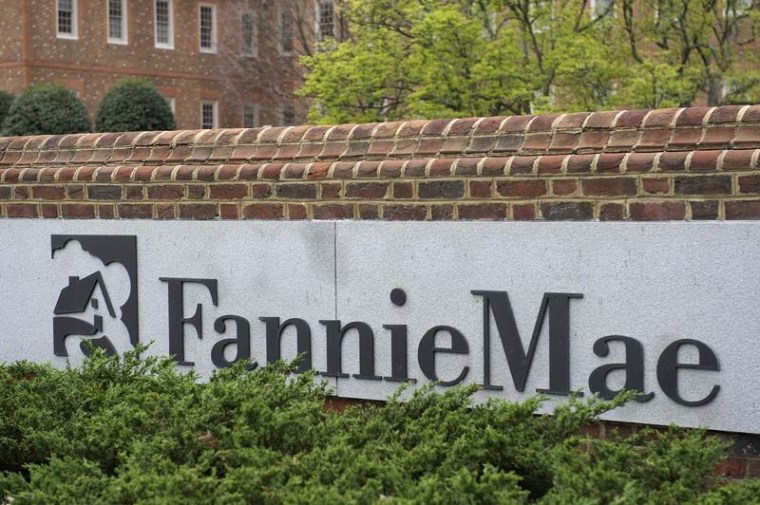
With the housing recovery bumping along in fits and starts, federal regulators said Thursday they would allow Fannie Mae and Freddie Mac to continue funding higher-priced mortgages, at least through the middle of next year.
President Barack Obama had called on the Federal Housing Finance Agency, the conservator of the two mortgage giants since September 2008, to lower the mortgage limits by the end of this year in order to shrink their role in the market. But Ed DeMarco, FHFA acting director, said the timing is not right just yet.
"We are not making a change there in the immediate term," DeMarco told reporters. "I recognize and understand that the industry is very busy right now making implementation of other regulations that take effect the first of next year, and that's enough."
DeMarco is referring to new mortgage regulations from the Consumer Financial Protection Bureau requiring lenders to prove a borrower has the ability to repay a loan. The so-called "Qualified Mortgage rule" takes effect Jan. 1, and lenders are scrambling to make sure they will be in compliance with all its requirements.
The Obama administration has been pushing for lower loan limits at Fannie and Freddie in an effort to reduce the government's role in lending and bring private capital back to the mortgage business.
Limits for government-backed mortgages were raised from $417,000 to as high as $729,750 for high cost areas in 2008. That was when private capital vanished from the market, and the government, in the form of Fannie, Freddie and the FHA, were left to fund the market. Limits were reduced to $625,500 for high-cost areas in 2011.
The FHA's limits are still at $729,750 but are scheduled to fall at the end of this year, further reducing its market share, which has dropped in the past year already due to higher insurance premiums and fees.
Some housing industry associations have been lobbying hard against a drop in loan limits. While jumbo mortgage rates have actually been near or even below conforming loan rates, historically they have been more costly.
The National Association of Realtors circulated a letter to members of Congress in September, warning that a reduction in the limits could hamper home ownership:
"While high cost loans make up a low percentage of all loans, it is simply a matter of equity for those living in high-cost markets where many millions of families live. Without higher loan limits in these areas, many hard-working, middle-income families will be denied homeownership just because they happen to reside in an area of high home prices.
"Lowering loan limits also would ... create confusion and uncertainty for potential borrowers and lenders, especially in the months leading up to any reduction. There is already turbulence enough in the regulatory environment for mortgage lending."
The FHFA considers loan limits every November, and DeMarco said that will continue, but he will give at least a six-month warning of changes. He did not rule out a drop in limits later in 2014 as part of a strategy to shrink Fannie and Freddie's market share further.
"My view that it is a legitimate tool to accomplish that goal has not changed," said DeMarco.
DeMarco did say that guarantee fees, the fees charged by Fannie Mae and Freddie Mac to lenders, will continue to rise. Those higher fees have been passed on to borrowers in the form of higher mortgage rates and are yet another incentive for lenders to take their business away from the government. The trouble is there are still few private investors willing to tread back into the mortgage market.
— By CNBC's Diana Olick. Follow her on Twitter @Diana_Olick.
Related stories:
Home affordability down as housing slows
JPMorgan deal could curtail credit